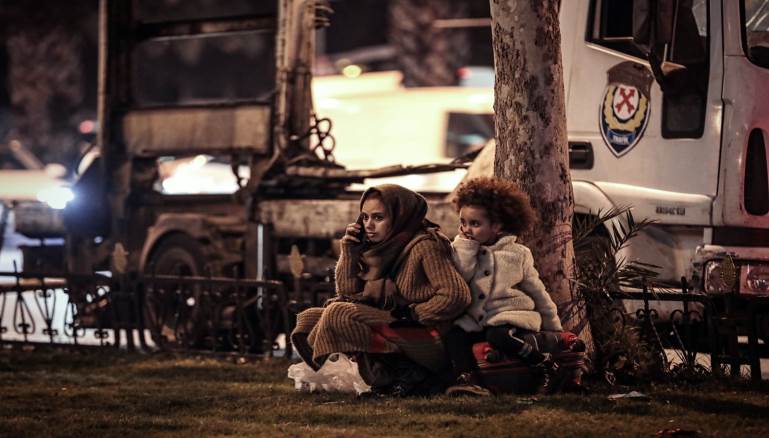Turkish opposition parties are more and more critical of how their country handled the Syrian crisis, especially when it comes to refugees. For example, Turkey’s opposition Iyi Party (Good Party) has formed an advisory working group on possible developments in Syria and policies towards the country.
Nuri Okutan, the party’s head of national security policies, told Turkey’s Anadolu news agency that the group was formed under instructions from party president Meral Akşener. Okutan added that Akşener would head the group, which will include the party’s head of international policy Ahmed Oruzan, academics, and some retired government officials.
“The working group will discuss what Turkey can or should do to solve problems in Syria and the region as part of a policy of respecting the territorial integrity of Syria and Iraq,” Okutan said.
Okutan said that the meeting of the advisory working group will be held under the title “Possible developments in Syria and Turkey’s policies.” He indicated that the report will be prepared and then submitted to the party’s general administrative body and the presidential office. The party’s parliamentary representatives will be informed of the report.
The Turkish opposition is capitalizing significantly on the Syrian issue, using it politically to challenge the current government’s policies and accuse it of mismanaging the file. It alleges that the government has bungled the impact of refugees on Turkey’s economic situation, which the Turkish government denies.
Controversy over citizenship
A few days ago, Umit Ozdag, the head of the opposition Victory Party, criticized granting Turkish citizenship to Syrian refugees, integrating them into society, and providing access to educational and health services. Ozdag called for withdrawing citizenship from all Syrians who had obtained it and returning refugees to their country.
Read Also: Refugees Fearful as Sentiment Turns Against Them in Turkey
The governor of the city of Kocaeli, Sedar Yavuz, criticized these statements. He noted that Turks obtain citizenship in the countries to which they emigrate.
“Turks who go to the United States become Americans and those who go to Germany become Germans, so what’s the difference when a Syrian loves Turkey and wants to obtain citizenship?”, the Turkish governor said.
Syrians in Turkey have recently been subjected to racist attacks on several occasions. Most recently, an attack severely injured 17-year-old Syrian Hassan Louk two days ago while he walked through Kaythana park in Istanbul, according to Turkish news websites. “The attack was racially motivated and Louk survived thanks to the intervention of young Turks, who rescued him from the assailants,” Kozal website quoted the injured young man’s brother as saying.
In late September, the southwestern Turkish city of Izmir witnessed violence against Syrians. The attacks were connected to a young Syrian killing a young Turkish man with a knife.
Many areas in the Turkish states, most notably Istanbul, Gaziantep, and Şanlıurfa, are witnessing attacks by Turkish citizens on Syrians, as well as widespread, repeated attacks on their property and shops. Despite these incidents, Turkish Interior Minister Suleiman Soylu asserted earlier that Turkey has not faced any security and stability problems arising from the waves of Syrian refugees, which began in 2011.
There are more than 3.7 million Syrian refugees living in Turkey, most of whom reside in southern states close to the Syrian border. The refugees mostly work in sectors like industry and agriculture.
This article was translated and edited by The Syrian Observer. The Syrian Observer has not verified the content of this story. Responsibility for the information and views set out in this article lies entirely with the author.


